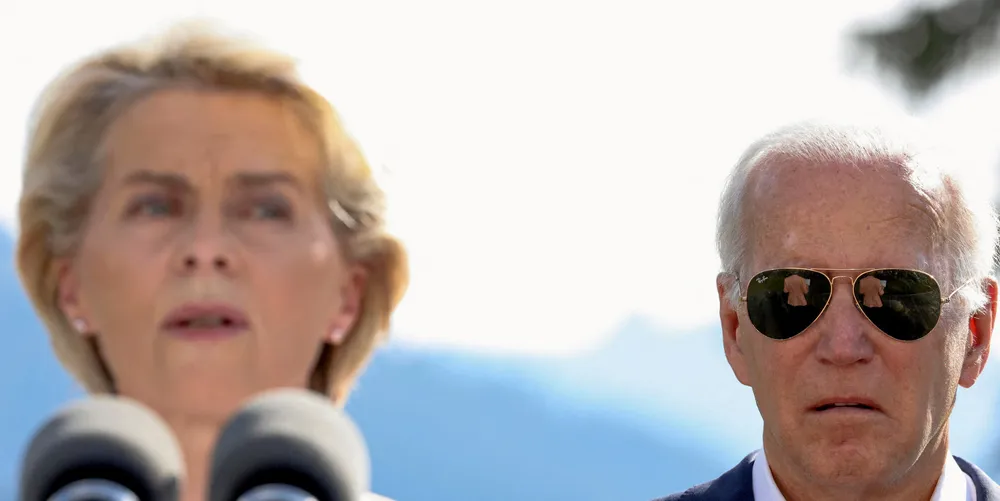EU poised to unveil 'Green Deal Industrial Plan' to counter pull of Biden's IRA
New green-focused strategy expected to be presented Wednesday amid concern US law will prompt exodus of renewables industry from Europe

The European Commission on Wednesday is expected to propose a new industrial policy strategy with measures to boost a speedier expansion of renewable energy and green technologies, including through an easing of state aid rules to enable higher subsidies.
The ‘Green Deal Industrial Plan for the Net-Zero Age’, according to other reports citing leaks is likely to call for targets for industrial capacity by 2030 “to ensure that strategic dependencies do not put the green transition at risk”.
It will also propose easier permitting processes that include time limits for different stages of permitting as well as ‘one-stop-shop’ practices in member states.
To give incentives to produce in Europe, or keep already established industries there, the new EU industrial policy is slated to contain a second element of a new ‘European sovereignty fund’ to be set up by the summer. The fund aims at avoiding financially strong countries such as Germany using their “deep pockets” to grant aid to large-scale investments in strategic sectors that more wobbly countries, mostly in southern Europe, cannot match.
To guarantee common funding of a joint industrial policy the ‘European Sovereignty Fund’ would need to be filled sufficiently, but it is yet unclear how. While Thierry Breton, the European Commissioner responsible for industrial policy, and southern European countries lobby for additional shared EU debt, that possibility is abhorred by Germany and other northern EU members.
SolarPower Europe in a position paper has proposed key actions for the Green Deal Industrial Plan for the solar sector. The industry lobby also suggests to revise state aid competition rules, by making them simpler and their approval faster, and proposes to leave the new framework in place until 2030 to match the 10-year visibility of the IRA.
(Copyright)